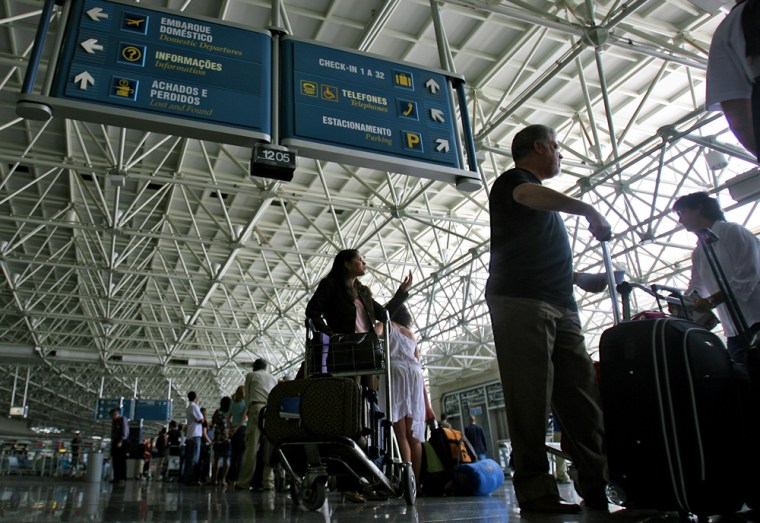Air traffic in Brazil slowly began to return to normal on Thursday after two days of near chaos at airports around the country that has prompted calls for the resignation of government aviation officials.
Still, almost 200 flights were delayed and more than 20 were canceled at several airports, Brazil’s civil aviation agency said. But the situation was a far cry from Tuesday and Wednesday, when an equipment failure in a control tower forced authorities to take the unprecedented step of temporarily shutting down three major airports.
“The situation should be back to normal by the end of the day,” a spokeswoman for the aviation agency said.
At least 1,000 flights were delayed on Tuesday and Wednesday and 322 more were canceled, triggering protests by outraged travelers and prompting Brazil’s Congress to create two separate committees to investigate the situation.
The crisis has also led to calls for the resignation of Defense Minister Waldir Pires and Air Force Commander Luiz Carlos Bueno, whose handling of the situation has been widely criticized as ineffective. The military is in charge of civil aviation in Brazil.
On Wednesday, the president of Brazil’s lower house of Congress called on the government to adopt “drastic measures” to address the crisis. Some lawmakers and aviation experts said it was time for the military to hand over control of the aviation system to civilian authorities.
President Luiz Inacio Lula da Silva responded on Thursday by ordering the Air Force to buy back-up systems for the entire air traffic control grid, according to two government officials who spoke on condition of anonymity.
Air traffic in Brazil has been badly disrupted since a Boeing 737 operated by Brazilian airline Gol Linhas Aereas Inteligentes crashed in the Amazon rain forest on Sept. 29, killing all 154 people aboard.
The inquiry into the accident, which is still inconclusive, exposed major faults in Brazil’s air traffic control system.
In response, air traffic controllers have organized work slowdowns to protest poor pay and long hours, disrupting air traffic several times in the last two months.
Authorities are investigating if this week’s breakdown was the result of sabotage by disgruntled controllers, who have complained that they are being made scapegoats for the September crash.
Some analysts say the crisis could have a ripple effect on the economy in Brazil, a continent-sized country where flying is often the only option for business travelers.
Airlines are already feeling the pinch. Shares in Brazil’s top two airlines, TAM Linhas Aereas and Gol, have each fallen more than 15 percent in the last two months.
And on Thursday, Gol slashed its revenue forecast for this year and next, citing a drop in passenger traffic because of the crisis. TAM declined to comment on the financial impact of the crisis.
